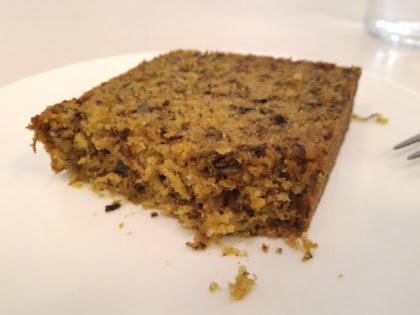From the short report, I'm guessing the organisation is frowning - again - on street Malay and envelope-pushing stuff that often appear in such works. The statements were made during a literary event, so it looks like another appeal to nostalgia.
In a Facebook post, Silverfish Books wondered what took DBP so long to wake up to the reality. Not of the "dangers" of indie works, but that its role as trendsetter and promoter of Malaysian literature has seemingly been usurped by these rebel upstart outfits.
Nature (and literature) abhors a vacuum. Yes, many have complained about the (often crude) language and poor editing in the indie publications.
Well, that didn't stop the current surge of popularity of indie material. And the coarseness of one's tongue (or pen) may not reflect one's character.
Like some, I feel that, as a defender and developer of language and literature, DBP dropped the ball years ago. Its presence in bookstores seems to have ebbed as well. "Where are the DBP books in Malaysian bookshops (apart from the dictionary)?" asked Silverfish.
Also interesting is Silverfish's statement that DBP publishes books "to fulfil KPIs; not sell them." If that's the reason books are being published, it's not even a business. Assuming there's useful content in these publications, how is it going to reach the public without efforts in marketing? Books don't sell themselves.
Indie lit is growing, and its purveyors are making strides across the publishing industry and connecting with their readership like I've never seen before. It's all peer-to-peer and so, so warm and energetic, unlike how the elders at some institutions talk down to others at the foot of their ivory towers.
The nimble young 'uns are getting around limitations imposed by governments, institutions and firms. With a bit of luck, it'll be the millennials and their street Malay that will make the national language more global.
The latest and perhaps the loudest shot from across the bow is the news that several indie outfits have helped set up a country booth for Malaysia at this year's London Book Fair. And these were among those tarred by the National Civics Bureau as masterminds of an anti-establishment movement.
According to the report, "the Malaysian booth is entirely self-funded: Buku Fixi, DuBook Press, the Yusof Gajah Lingard Literary Agency and Clarity Publishing are doing this without any help from the public or private sector." The set-up and other related costs is over RM100,000 - a fraction of the allocations for some government projects. I found the possible reasons for the official bodies' "lukewarm" response to collaborate in the LBF quite telling.
(Here's what some of the indie publishers have to say about the establishment. Still an interesting read.)
I was tickled by Silverfish's challenge to DBP; I thought it had Dewan's back to the wall. "...are you going to compete with them (you are a big organisation with almost infinite funds), or sit around and whine? Or use your muscle and 'ban' them? The last would be easy. After all, it is quickly becoming the Malaysian way.
"Or, God forbid, work with the indies?"
Rather than waste energy on "Malaysian ways" or wheezing "not our culture" (as if culture never evolved), the old fogeys might as well try to keep up, or just watch the kids do their thing from the sidelines if they don't want to help out.
Categories:
Book Blab




















